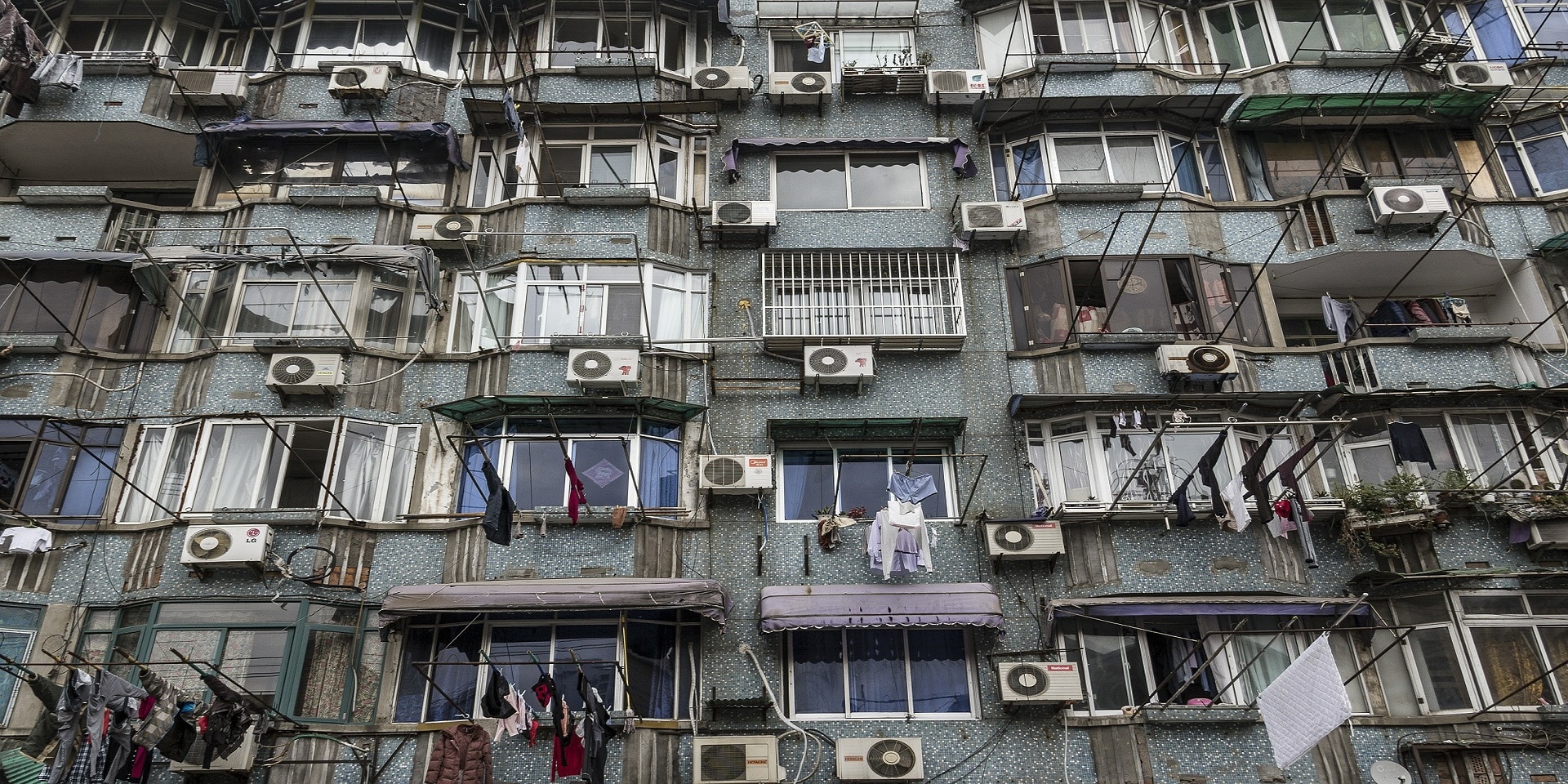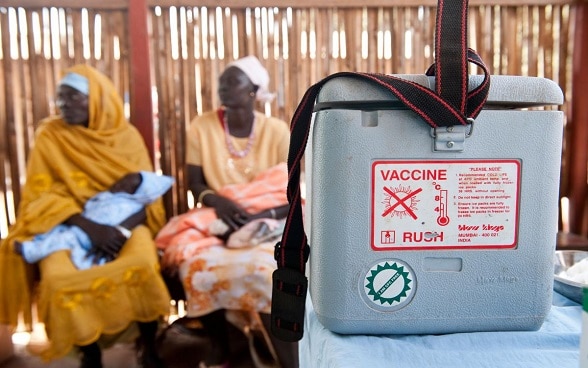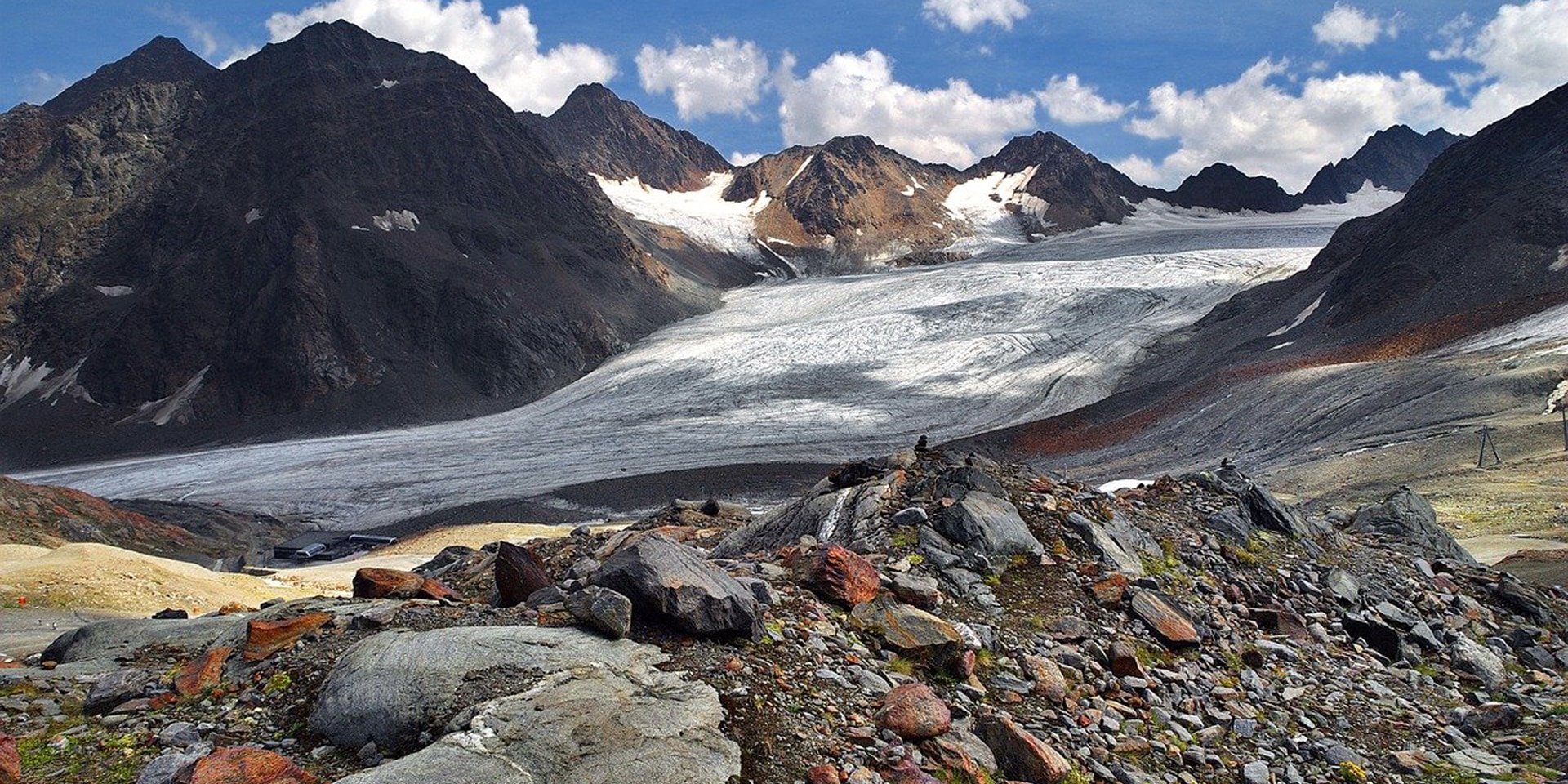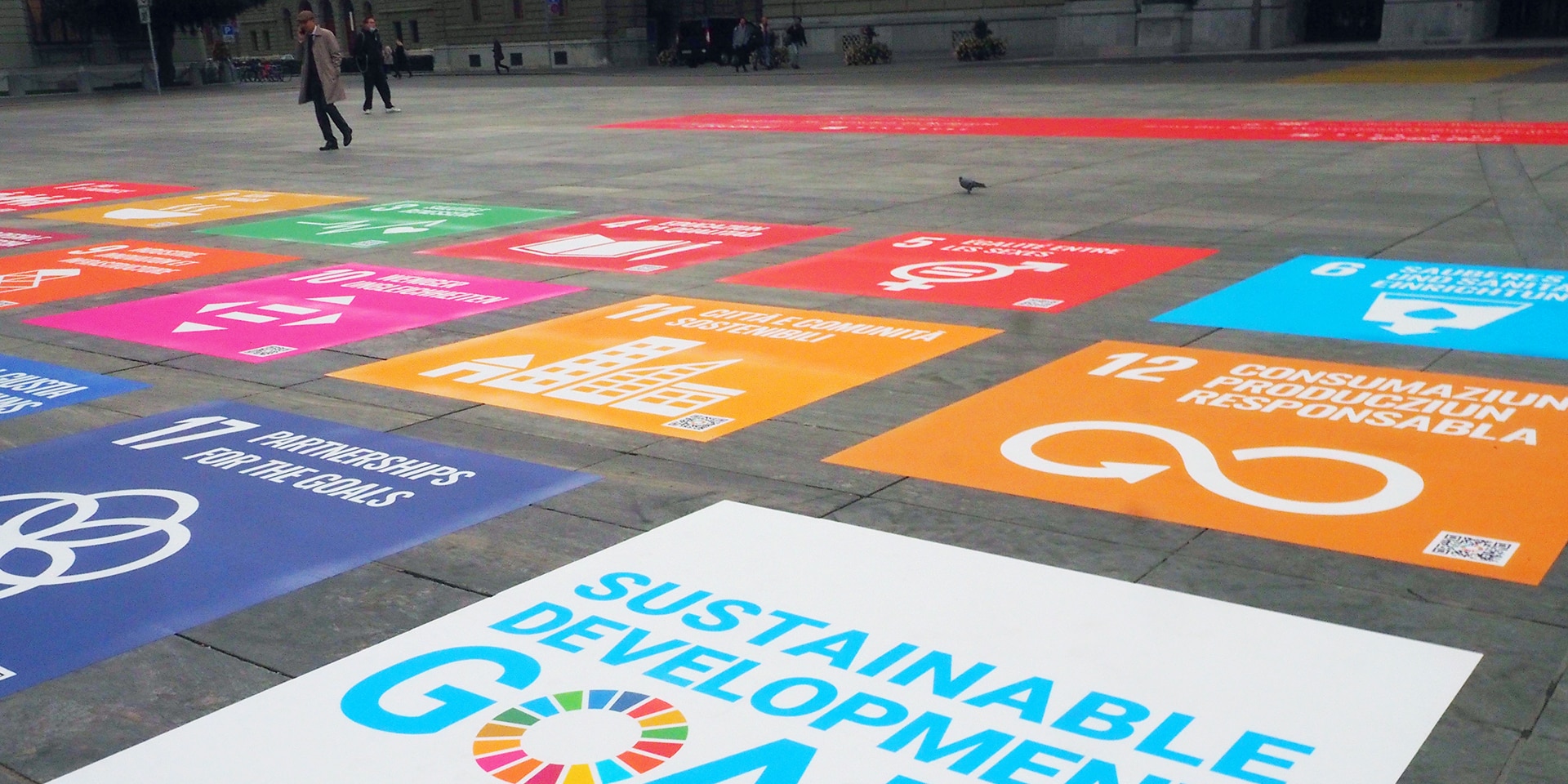Clean cooling systems to fight global warming
Rising temperatures and increasingly frequent extreme heat waves are driving up demand for cooling and air-conditioning systems, especially in urban areas in emerging countries. Air conditioning saves lives. But air conditioning is also one of the main causes of global warming. To break this vicious circle, tackle climate change and alleviate poverty, Switzerland promotes energy-efficient cooling solutions.

Energy demand for air conditioning is expected to increase 33-fold between 2000 and 2100, mainly in developing countries. © pixabay
It's mid-January, a bone-chilling minus 2 degrees Celsius. Radiators in Swiss homes and offices are turned to high settings to keep room temperatures around a comfortable 22 degrees. Enjoying a comfortable indoor temperature year-round at home and at work is something we take for granted. But people in many emerging and developing countries do not have access to cooling systems: in the fast-growing city of Rajkot in the western Indian state of Gujarat, for example, the thermometer frequently climbs above the 40 degree mark in summer. Most residents can only dream about pleasant room temperatures. They either cannot afford air-conditioning at all or can only buy cheap units that do not work properly. They also have to contend with constant power outages. Over a billion people, mainly in Asia and Africa, face cooling access risks, according to a report by Sustainable Energy for All, a global initiative supported by Switzerland.
Cooling systems should not be a luxury

Heat waves caused by climate change have a negative impact on quality of life across the board. Prolonged high temperatures not only lead to poor work performance among the population at large but also expose the elderly, the very young and the sick to potentially life-threatening risks. The COVID-19 pandemic has exacerbated the problem: medicines and urgently needed vaccines must be stored at low temperatures to prevent them from degrading. Lack of access to cooling systems also poses a serious threat to food security, as many foods cannot be stored safely without refrigeration. This has a direct negative impact on the economy and livelihoods of smallholder farmers. Without access to refrigeration, they cannot transport their perishable produce and can only market it within a very small radius.
Cooling systems and global warming: a vicious cycle
Cooling systems are essential for survival but also contribute to global warming. Some 7–10% of global CO2 emissions are caused by cooling equipment. Rising demand for air-conditioners is driving a massive increase in electricity consumption. This electricity is still mainly generated from fossil fuels. Moreover, most cooling devices use chlorofluorocarbons (HFCs) as refrigerants. HFCs are powerful greenhouse gases that are 23,000 more potent than carbon dioxide in contributing to climate change. As long as we continue to use cooling devices that rely on fossil-fuel based refrigerants, we are addressing the problem of excessive heat but continuing to pollute the environment.
Breaking this vicious cycle will require a rapid reduction in the use of HFCs – which can only be achieved through a fundamental rethink and strong action in the energy, construction, transport and agriculture sectors.
Global commitment to innovative solutions
The SDC supports two global initiatives that promote energy-efficient cooling solutions: Sustainable Energy for All and the Kigali Cooling Efficiency Program, which is active in Burkina Faso, Cambodia, Chile, Tunisia, Ethiopia, Jordan, Morocco, Nigeria, Pakistan and Vietnam. Both initiatives are bolstering policies, standards and financing for climate-friendly cooling systems. The goal is for developing countries and emerging economies to set ambitious targets in their national climate policies and to deliver on them. Innovative solutions are needed to ensure effective cooling solutions for buildings while complying with energy standards. This is where SDC projects come into play. The BEEP project for energy-efficient construction in Rajkot, an Indian city with a population of 1.3 million, for example, brings together Swiss building technology experts with local construction specialists and ministries. Energy efficiency measures implemented in 1,176 residential units have reduced room temperatures during the hottest days of summer by more than 5 degrees and increased the number of hours with comfortable room temperatures below 30 degrees from about 2,600 to about 6,300 hours. Another example are external movable shading systems, which can reduce the energy consumption of cooling systems by up to 45%.
Climate change mitigation: a Swiss foreign policy priority
Climate change poses many risks besides rising sea levels, natural disasters and extreme heatwaves. Developing countries are particularly at risk because they often lack the resources to develop climate adaptation strategies. Climate change is a global threat that hinders development towards a sustainable world.
"Switzerland will reinforce its foreign policy commitment to tackling climate change and protecting the environment," states Switzerland's Foreign Policy Strategy 2020–23. The SDC's Global Programme Climate Change and Environment is also becoming an increasingly important part of Switzerland's international cooperation efforts. Climate change mitigation measures are essential to achieve the goals of the 2030 Agenda and the Paris Climate Agreement to limit the global average temperature rise to 1.5 degrees above pre-industrial levels.



